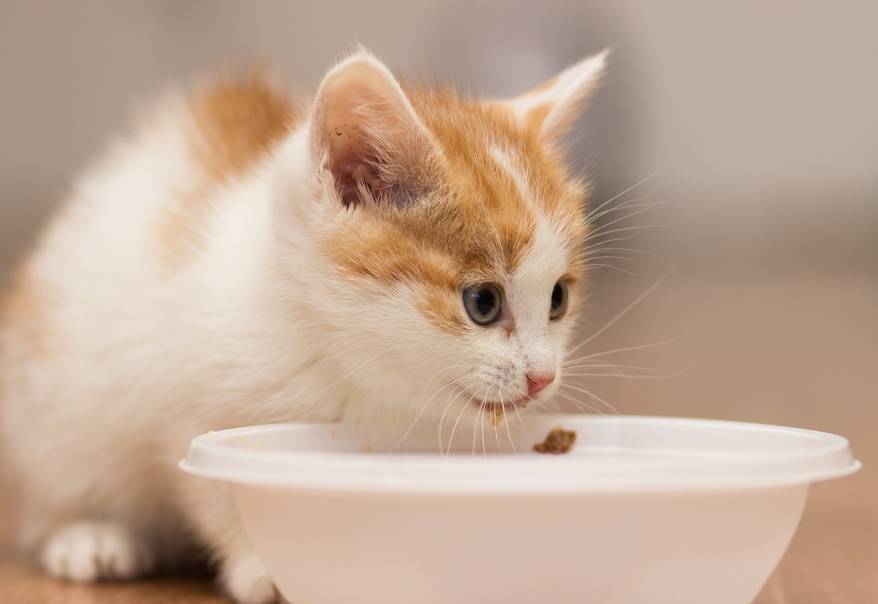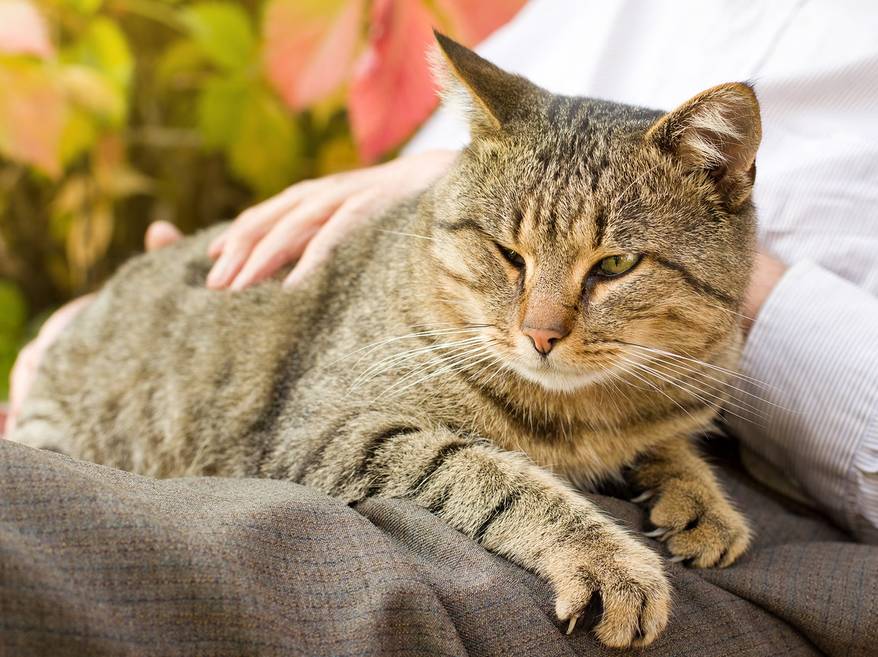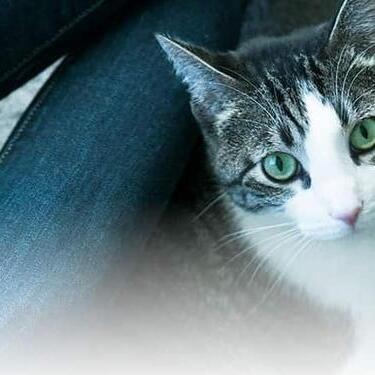
-
Find the right food for your pet
Take this quiz to see which food may be the best for your furry friend.
Find the right food for your pet
Take this quiz to see which food may be the best for your furry friend.
Featured products
 Adult Healthy Cuisine Roasted Chicken, Carrots & Spinach Stew Dog Food
Adult Healthy Cuisine Roasted Chicken, Carrots & Spinach Stew Dog FoodDelicious roasted chicken paired with tender vegetables in a succulent stew
Shop Now Small & Mini Savory Stew with Chicken & Vegetables Dog Food
Small & Mini Savory Stew with Chicken & Vegetables Dog FoodA delicious complement to the nutrition of Science Diet Small & Mini 7+ dog food
Shop Now Adult 7+ Perfect Digestion Chicken, Whole Oats & Brown Rice Recipe Dog Food
Adult 7+ Perfect Digestion Chicken, Whole Oats & Brown Rice Recipe Dog FoodScience Diet's breakthrough nutrition supports ultimate digestive well-being & healthy microbiome for dogs age 7+
Shop NowFeatured products
 Adult 7+ Tender Tuna Dinner Cat Food
Adult 7+ Tender Tuna Dinner Cat FoodWith delicious chunks in a decadent gravy
Shop Now Adult Savory Entrée Can Variety Pack Cat Food
Adult Savory Entrée Can Variety Pack Cat FoodPrecisely balanced nutrition with the delicious taste of savory minced chicken to help fuel the energy needs of cats during the prime of their life
Shop Now Adult 7+ Senior Vitality Chicken & Vegetable Stew Cat Food
Adult 7+ Senior Vitality Chicken & Vegetable Stew Cat FoodImproves Everyday Ability to Get Up & Go
Shop Now -
Dog
- Dog Tips & Articles
-
Health Category
- Weight
- Food & Environmental Sensitivities
- Urinary
- Digestive
- Joint
- Kidney
-
Life Stage
- Puppy Nutrition
- Adult Nutrition
- Senior Nutrition
Cat
- Cat Tips & Articles
-
Health Category
- Weight
- Skin & Food Sensitivities
- Urinary
- Digestive
- Kidney
-
Life Stage
- Kitten Nutrition
- Adult Nutrition
Featured articles
 Does My Pet Hate Me?
Does My Pet Hate Me?Learn tips for bonding with your pet if you've ever thought, 'My dog doesn't like me, or 'Why do I have a standoffish cat?'
Read More Why Are Dogs and Cats So Cute?
Why Are Dogs and Cats So Cute?If waggy puppy dog tails and furry kitten yawns make you swoon, you're not alone. Why are cats so cute? And, dogs too! Let's find out!
Read More Do Dogs and Cats have Belly Buttons?
Do Dogs and Cats have Belly Buttons?Learn whether cats & dogs have belly buttons like humans, what the function is, and if there are any health concerns associated with it.
Read More -


Your cat's age is something that needs to be considered when choosing the proper food for your cat, whether you're searching for kitten food or senior cat food. Selecting one that provides your furry friend with the optimum nutrition she needs at each lifestage can help to ensure a long, healthy life.
When searching for a cat food check the packaging to see if it matches your cat's lifestage. A cat requires different levels of nutrition at every lifestage, so it is important to choose one that matches her energy level, metabolic rate and other basic needs. Some times all this information can make cat food labels not easy to read, however, so it's important to know what your cat needs and why.
As classified by the American Animal Hospital Association, there are six identifiable stages of a cat's life, each of which requires its own smart pet food choices.

Newborn Kittens (Birth to 4 months)
Newborn kittens will stay with their mother for the first 8 or so weeks as they will rely on their mother's milk to help them grow and fight off diseases that their immune system is quite equipped to deal with. During this time, they will do little else other than nurse and sleep.
When your kitten is at least 8-9 weeks old she will be ready to wean off her mother's milk and come home with you. After she is weaned and ready to go home, you'll immediately discover that she's a ball of energy with a zest for life. At this stage, a kitten's routine follows the pattern of eat, sleep, run around like crazy, repeat. She requires the right nutrients to maintain her boundless energy.
Now that she is weaned from her mother, whether from her mother or bottle-feeding, your new kitten food should be made with fatty acids, such as DHA (a common source of this nutrient is fish oil), folic acid, and taurine, an amino acid that aids in the vital development of the immune and digestive systems, heart functions and vision quality. Protein is another vital component of kitten food and comes from a variety of sources, including meat and grains. She is growing at an astonishing rate (this stage is equivalent to the first ten years of a human's life!) and needs energy to keep up the pace. It's important that these nutrients are always in the right amounts to ensure the best opportunity to be healthy as she grows. In addition to nutrition, don't forget about other kitten care opportunities.
Junior Cats (7 Months to 2 years) and Prime Cats (3-6 years)
If your fur baby's behavior changes as she approaches the one-year mark, don't be surprised. She's beginning adolescence and then moving on to adulthood, lifestages that correspond to the human ages of 12-27 (Junior) and 28-40 (Prime).
Technically, cats are considered to be adults at the age of one year and that will extend through year six, but age is not necessarily a deterministic factor in how active your cat will be. Many cats will be very lively well into their double-digit years. For this reason, one of your considerations for feeding a young adult cat should be activity level. An average kitty will need enough food for "maintenance" energy to go about her daily activities, but if your cat is extremely active and spends hours sprinting around the house, she'll need a few more calories to sustain her. If your pet likes to laze in the sunshine all day, she might require carefully measured meals to keep her trim. Talk to your vet about your cat's activity level, as they can help you determine if your cat needs more or less calories.
Adult cats require the right amount of fat and protein in their meals as well as other nutrients like taurine. Consider the Hill's® Science Diet® line of cat food. These products, ranging from kitten food all the way up to senior cat food, provide balanced nutrition in a variety of options for adult cats of all ages, sizes and activity levels, including hairball, sensitive stomach and light formulas.


Tasty Tips
Mature Cats (7-10 years) and Senior Cats (11-14 years)
Cats in these two categories are placed firmly in the middle stages of life. In human years, these furry friends are in their early 40s through early 70s comparatively to humans. While your kitty won't (necessarily) experience a mid-life crisis, she may become a little more finicky with her food choices, and you'll need to ensure she gets the nutrients she needs while staying properly hydrated. Always make sure your cat has access to clean, fresh water.
This also is a time of life when cats' nutritional needs shift, whether because of medical issues or simply aging. In some instances, too much or too little of any one ingredient may impact her health. During this stage, you'll want to keep an eye on your cat's weight as her activity level may decrease, which could lead to obesity. Avoid the calorie-rich food formulated for kittens and young adult cats; instead, look for foods that are formulated with her needs as an aging cat are kept in mind like Youthful Vitality cat food. Watching her calorie intake not only keeps her weight in a healthy range but also reduces the risk of diseases, such as kidney disease, certain cancers and osteoarthritis.

Geriatric Cats (15+ Years)
In her golden years, your fur baby may start to seek more attention from you, become more affectionate, and reduce her activity level. As her behavior changes, so do her meal time needs.
Much like the foods for adult cats, senior cat food should be low in calories and fiber. Another concern for elderly cats is being underweight. Hill's® Science Diet® Adult 11+ Age Defying Cat Food is formulated with the right balance of necessary ingredients for geriatric cats with the added benefit of antioxidants that help keep her healthy during the aging process.
Both wet food and dry food provide your cat with the ingredients she needs, but there are upsides and downsides to each. Older cats often have worn or missing teeth, so she might appreciate something a little softer. Some pet parents try a combination of the two, or add just a little wet food — or even some fresh water — to dry kibble. Your cat certainly will let you know her preference, and the two of you can work together to find the perfect fit.
Where do cat treats fit into a cat's meal plan? As just that: a treat. "While giving your cat an occasional treat is not generally harmful, they are usually not a nutritionally complete and balanced source of nutrition and should only be fed occasionally," explains the College of Veterinary Medicine at Cornell University. According to Cornell, you also should avoid giving your cat raw meat (it carries the risk of toxoplasmosis and infectious disease), canned fish (risk of neurological disease) and milk (many cats can't digest dairy).
In addition to a nutrient-rich food, your cat needs to stay hydrated in order to stay healthy. This is especially true for senior and geriatric cats, for whom dehydration can be a side effect of certain medical conditions.
There are, of course, exceptions for each cat lifestage if there are medical concerns or other issues to address, at which time you should consult with your veterinarian. Your vet can also help you determine the best feeding schedule for your cat including how much to feed at each lifestage as well as when to feed throughout the day. Choosing the best cat food for your best pal will help to keep her healthy, no matter whether she's young or young at heart.


Christine O'Brien is a writer, mom, and long-time cat parent whose two Russian Blues rule the house. Her work also appears in Care.com, What to Expect, and Fit Pregnancy, where she writes about pets, pregnancy, and family life. Find and follow her on Instagram and Twitter @brovelliobrien.
Related products

Supports energy level and beautiful fur in mature cats

Precisely balanced nutrition with the delicious taste of savory minced chicken to help fuel the energy needs of cats during the prime of their life

With delicious chunks in a decadent gravy

Improves Everyday Ability to Get Up & Go
Related articles

Discover which cat toys games your feline friend might like, and how they are great sources of exercise. Explore our library of articles to learn more.

Discover how to identify cat sensitive skin and what you can do to help your cat thrive from head to paw.

Brushing your cat's teeth is just as important as brushing your own. Learn signs or oral health problems in your cat and how to avoid them.

Discover the benefits of Hill's line of kitten foods and how they provide complete and balance nutrition for growing kittens.

Put your cat on a diet without them knowing
Our low calorie formula helps you control your cat's weight. It's packed with high-quality protein for building lean muscles, and made with purposeful ingredients for a flavorful, nutritious meal. Clinically proven antioxidants, Vitamin C+E, help promote a healthy immune system.
Put your cat on a diet without them knowing
Our low calorie formula helps you control your cat's weight. It's packed with high-quality protein for building lean muscles, and made with purposeful ingredients for a flavorful, nutritious meal. Clinically proven antioxidants, Vitamin C+E, help promote a healthy immune system.

